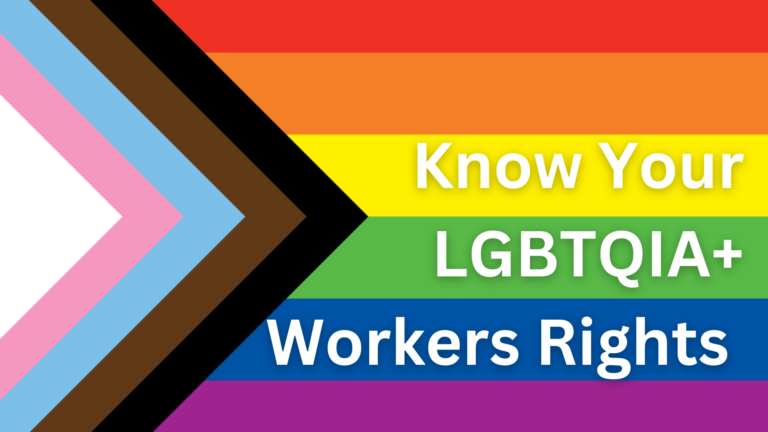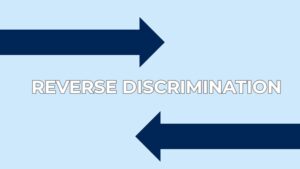Under the NYC Human Rights Law, it is illegal to discriminate based on actual or perceived sexual orientation or gender. Gender discrimination includes discrimination based on gender identity or identity or being intersex. These protections cover discrimination in many places including but not limited to public spaces and the workplace. The NYC Human Rights Law also protects members of the LGBTQIA+ community against retaliation, discriminatory harassment, and bias-based profiling.
LGBTQIA+ individuals must be treated equally in the workplace. It is unlawful to harass or intimidate someone in the workplace because they are LGBTQIA+. It is also unlawful to make discriminatory employment decisions (e.g., refusing to hire or promote an employee over their LGBTQIA+ status).
Transgender and gender non-conforming people do not need to show “proof” of gender to exercise their right to be addressed by their preferred pronoun or name to use bathroom or other single-sex facilities most consistent with their gender identity and/or expression.
Workplace treatment rooted in stereotypes about masculinity and femininity is unlawful. For instance, employees cannot be told that their “not manly enough” or that they need to act or “dress like a woman.” It is unlawful to maintain uniform requirements, dress codes, or grooming standards that impose different requirements based on gender.
Moreover, it is unlawful for an employer to discriminate in the provision of employee benefits based on gender or sexual orientation. If employers offer health benefits to employees’ spouses, then they must also offer benefits to same-sex spouses as well as benefits to cover gender transition-related care.
Examples of gender and sexual orientation-based discrimination may include:
- Employers and/or management denying an employee parental leave when their same-sex partner gives birth to their child but provides other employees parental leave when their opposite-sex partner gives birth;
- Employers and/or management misgendering transgender employees by intentionally using incorrect pronouns (i.e. inconsistent with preferred pronouns); for example, a supervisor repeatedly referring to a transgender male employee as “her” or “Ms.” at work when said employee has made it clear that his pronouns are “he/him/his” and “Mr.”
- Transgender individuals being barred from using a gender specific restroom out of concern that other employees or customers will be uncomfortable;
- Employers and/or management making derogatory remarks about an intersex employee not being “a real man/woman.”
If you have any questions about your right as a worker or believe you may have been a victim of discrimination in the workplace, please do not hesitate to contact the attorneys of Pechman Law Group at 212-583-9500.




